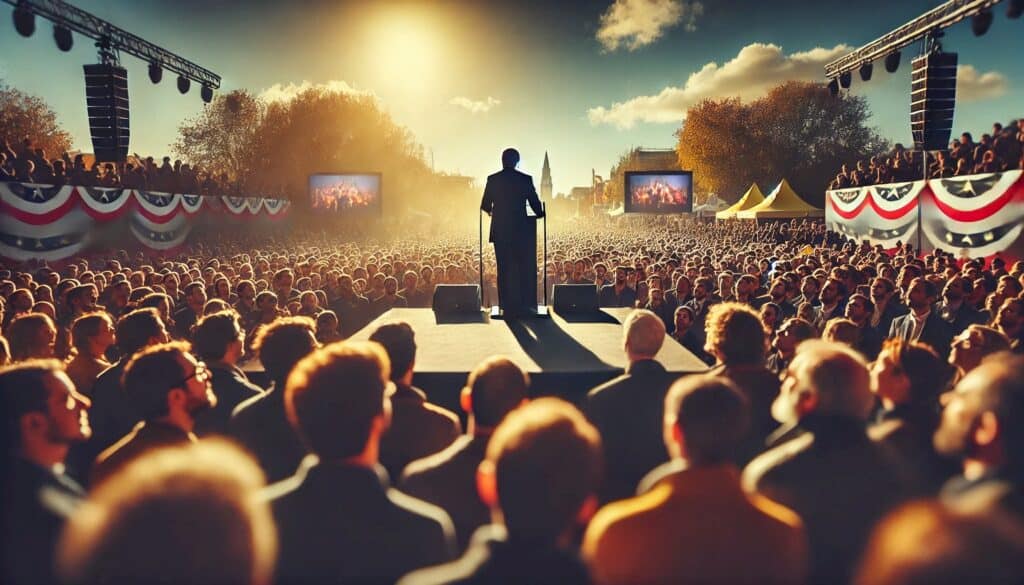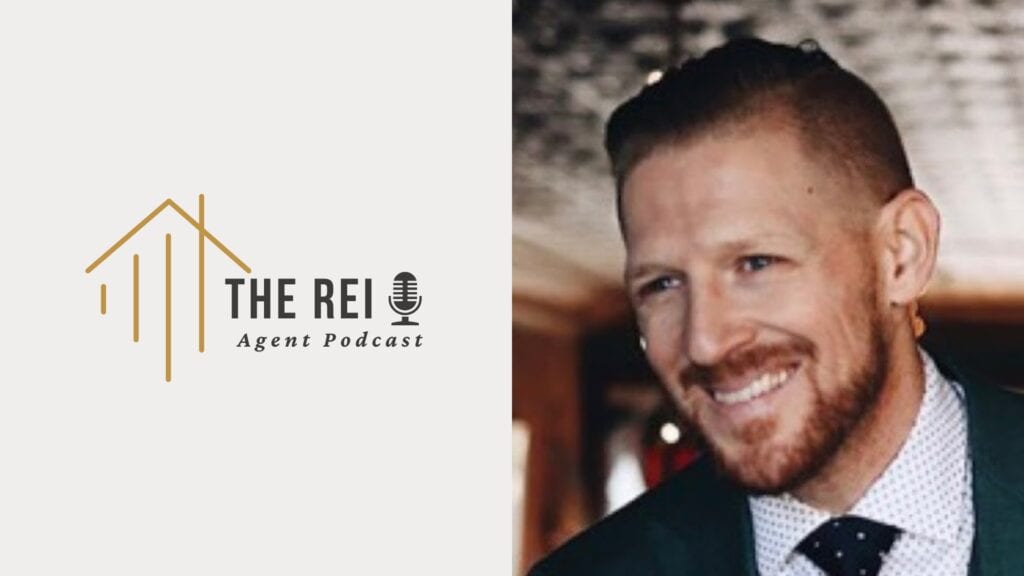LISTEN TO THIS ARTICLE
Key Takeaways
- Understanding unconscious biases and psychological patterns can help investors avoid emotional decision-making during politically charged times.
- Observing how other investors react to debates is useful, but it’s important to base decisions on individual strategies and risk tolerance.
- Flexibility in adapting investment strategies based on new information from presidential debates is crucial for long-term success.
Disclaimer
The content presented in this article is intended for informational purposes only and is based on the author’s interpretation of the teachings, studies, and beliefs of the referenced psychologists, including but not limited to Sigmund Freud, Carl Jung, B.F. Skinner, Jean Piaget, and Albert Bandura. The claims, insights, and perspectives outlined herein are not direct quotations or verbatim representations from these psychologists. Instead, they are cultivated interpretations by the author and should be understood as such.
The ideas presented in this article aim to explore potential connections between psychological principles and real estate investing in the context of presidential debates. However, these ideas do not reflect any formal endorsement or specific stance from the psychologists mentioned. As such, no direct or explicit claim is made that these professionals provided or supported the conclusions drawn in this article.
Neither the author, United States Real Estate Investor (USREI), nor any associated parties make any warranties or representations regarding the accuracy, completeness, or applicability of the content herein. The application of psychological concepts to real estate investing, as described in this article, is speculative and intended to inspire critical thinking and further exploration of the subject.
Readers are encouraged to consult original works from the referenced psychologists or seek professional advice tailored to their specific situations before making any real estate or financial decisions. The information provided is not to be construed as professional psychological advice or as guidance on real estate investments.
By reading this article, you agree that neither the author, United States Real Estate Investor (USREI), nor any affiliated parties shall be held liable for any actions taken or decisions made based on the information provided.

Can a heated political debate really impact your investment decisions?
The answer might surprise you.
Presidential debates are more than just political theater; they can influence the economy, shape public perception, and—believe it or not—impact your real estate investing decisions.
But why?
The answer lies deep within human psychology.
From unconscious biases to the power of observation, the words spoken on stage by political candidates can ripple through the minds of investors like you, affecting everything from confidence in the market to long-term investment strategies.
In this article, we’ll explore how presidential debates can influence your investment mindset through the teachings of world-famous psychologists like Sigmund Freud, Carl Jung, B.F. Skinner, Jean Piaget, and Albert Bandura.
Their groundbreaking theories on human behavior will shed light on how these televised debates can nudge you toward rash decisions or reaffirm your confidence in your strategy.
Buckle up as we dive into the psychological mechanisms that might be shaping your real estate investing without you even realizing it.

Sigmund Freud’s Perspective on Presidential Debates and Investment Behavior
Sigmund Freud, often hailed as the father of psychoanalysis, has a lot to say about the unconscious forces that drive human behavior.
Even though he wasn’t talking specifically about real estate investing during presidential debates, his theories give us some interesting ways to look at how these events might affect your decision-making as an investor.
Role of the Unconscious Mind in Decision-Making
Freud believed that much of our behavior is influenced by the unconscious mind, which is packed with desires, memories, and conflicts we aren’t even aware of.
So, when you’re watching a heated presidential debate, you might not consciously realize how it’s shaping your investment decisions.
For example, certain words or phrases from a candidate could tap into fears or hopes that you didn’t even know you had.
RELATED CONTENT
This could push you toward either risky investments or overly cautious moves, depending on what’s being triggered in that deep, hidden part of your brain.
Id, Ego, and Superego in Investor Responses
Freud broke the human psyche into three parts: the id, the ego, and the superego. When you’re watching a presidential debate, these three forces are likely battling it out in your mind:
- Id: This is the primal, emotional side of you, focused on basic needs and desires. For an investor, this might be the voice pushing you to chase after high returns without worrying about the risks.
- Ego: Your ego is the rational part of your mind, trying to make sense of the debate and how it affects policies and markets. It helps you weigh options and make logical decisions.
- Superego: This is where your moral compass and societal norms come into play. You might consider how the candidates’ stances align with your ethical beliefs, and this could influence whether you invest in a certain market or property.


Defense Mechanisms Triggered by Debates
Freud also introduced the idea of defense mechanisms, which are mental strategies we use to protect ourselves from uncomfortable truths.
In the context of a presidential debate, you might unconsciously use these mechanisms to deal with any anxiety the candidates’ arguments stir up.
For example:
- Repression: You might push your fears about market instability to the back of your mind, avoiding making any big investment decisions until the political dust settles.
- Denial: If your preferred candidate is losing the debate, you might convince yourself that their policies will still prevail, causing you to make investment choices based on wishful thinking rather than reality.
- Projection: You could project your personal anxieties onto the broader market, assuming that everyone is feeling as uncertain as you are, which might cause you to overestimate the risk in making a particular investment.
Freud’s theories remind us that much of what influences our decisions happens beneath the surface, and being aware of these forces can help you make more informed, balanced choices—even when politics are in play.

Carl Jung’s View on Archetypes and Collective Behavior During Debates
Carl Jung, a Swiss psychiatrist and one of Freud’s early collaborators, took a different approach to human psychology. Jung believed in the concept of the collective unconscious, which contains universal memories and archetypes that influence how we perceive and respond to the world around us.
When it comes to real estate investing and presidential debates, Jung’s ideas can help explain why certain events or individuals might resonate with us in ways that affect our investment behavior.
Impact of the Collective Unconscious
Jung’s collective unconscious is packed with archetypes—universal symbols and themes that all humans recognize, whether we’re aware of it or not.
In the context of presidential debates, certain candidates might represent these archetypes, and that could unconsciously impact how you feel about the future of the real estate market.
For example:
- The Hero: A candidate who promises to save the economy or “restore the American Dream” might activate the Hero archetype. Investors might feel more confident and optimistic about market conditions, driving them to take bigger risks or invest more aggressively.
- The Shadow: On the flip side, a candidate who is viewed as dangerous or destabilizing might represent the Shadow archetype. This can spark fear or anxiety, making investors pull back, sit on the sidelines, or move their money to safer assets.
These archetypes influence how investors interpret not just the debates themselves but also the larger social and political landscape, which in turn can affect decisions about where, when, and how to invest in real estate.
Individuation and Investor Psychology
Jung was big on individuation, which is the process of becoming your true self by integrating both your conscious and unconscious mind.
How does this apply to real estate investing during political debates?
Well, individuation involves balancing your personal judgment with the broader collective influences you’re exposed to.
As an investor, that might mean acknowledging the emotional and unconscious reactions you’re having to the debates but also taking a step back to evaluate the facts rationally.
For example, if you feel a strong pull toward or against a particular candidate’s policies, it’s important to ask yourself:
Is this reaction based on facts and data, or is it a gut feeling triggered by something deeper?
Individuation encourages investors to align their strategies with both their personal goals and the realities of the market, without letting unconscious biases sway them too much.
Role of Dream Analysis and Intuition
Jung also believed that our dreams and intuition play a key role in how we process information and make decisions. In a politically charged atmosphere, your dreams and gut feelings might be trying to tell you something about your investment strategy.
Maybe your intuition is hinting at the potential risks or opportunities that aren’t immediately obvious in the debates.
Jung would encourage you to pay attention to these signals and use them as part of your decision-making process.
At the same time, it’s important to remember that intuition should complement—not replace—rational analysis. Trust your gut, but also verify with solid data before making any major moves in your real estate portfolio.
Jung’s perspective helps us understand how deep-rooted psychological patterns and symbols can influence investor behavior, often without us even realizing it.
By becoming aware of these unconscious forces, real estate investors can make more balanced and informed decisions, especially in the uncertain political climate surrounding presidential debates.


B.F. Skinner’s Behaviorist Approach to Real Estate Decisions Post-Debates
B.F. Skinner, a leading figure in the field of behaviorism, believed that human behavior is primarily shaped by external factors—specifically, reinforcement and punishment.
Unlike Freud and Jung, who focused on the unconscious and internal processes, Skinner emphasized that what happens around us plays the biggest role in shaping our actions.
In the context of presidential debates, this approach can offer a practical understanding of how these events influence real estate investing decisions through the lens of observable behavior and environmental stimuli.
Operant Conditioning in Investor Reactions
Skinner’s concept of operant conditioning explains how behavior is shaped by the consequences that follow it.
When you watch a presidential debate, the candidates’ policy proposals and performance act as environmental stimuli that can lead to reinforcement or punishment in terms of how you view the market and your investments.
For example:
- Positive reinforcement: If a candidate proposes policies that promise economic growth, real estate tax incentives, or support for infrastructure development, you might feel optimistic. This “reward” could reinforce your decision to invest more aggressively or expand your real estate portfolio.
- Punishment: On the other hand, if a candidate’s policies seem like they might negatively affect the real estate market—such as higher taxes, reduced incentives for property developers, or increased regulations—you may feel a sense of “punishment.” This might lead you to pull back on your investments or move toward more conservative, low-risk options.
Skinner’s theory suggests that your investment behavior post-debates is largely shaped by how you interpret the potential consequences of the candidates’ proposals.
If you anticipate positive outcomes, you’ll be more likely to invest; if you anticipate negative ones, you’ll retreat.
Observable Behaviors and Market Trends
Another critical aspect of Skinner’s behaviorist approach is the importance of observing others’ behavior to guide your own decisions.
After a major political event like a debate, it’s common to see shifts in the market based on how other investors react.
Skinner would argue that you, as an investor, are likely to be influenced by these visible trends.
For example, if you notice a surge in real estate investments following a debate where a pro-business candidate performed well, you might feel encouraged to join the crowd and increase your own investments.
Conversely, if other investors are selling off properties or slowing down their investments due to political uncertainty, you might hesitate to make any bold moves yourself, opting instead to wait and see how the market responds.
This herd mentality is a behaviorist principle at work. By watching the actions of others, you adjust your own behavior accordingly, especially when the consequences of those actions seem rewarding or punishing.
Skinner’s approach emphasizes that much of what we do as investors is shaped by our surroundings and the behavior of those around us.

Modeling Behavior Based on External Signals
Skinner also believed that behavior could be modeled based on external signals, which is highly relevant when discussing the influence of debates.
As real estate investors, you might model your behavior based on how political analysts, market experts, or even fellow investors react to the debate.
If key influencers in the real estate space respond positively to a candidate’s performance or policies, you’re likely to model that optimism in your investment strategy. If they react negatively, you might do the same.
In summary, Skinner’s behaviorist theory tells us that presidential debates act as powerful external stimuli, influencing how we perceive the risks and rewards in the real estate market.
By observing the behavior of others and responding to the environmental signals we’re exposed to, our investment decisions are shaped—often without much consideration for internal thoughts or feelings.
Understanding this behaviorist dynamic can help you remain more mindful of your responses and ensure that you’re making decisions based on long-term strategy rather than short-term reactions to political events.

Jean Piaget’s Stages of Cognitive Development and Investor Adaptation
Jean Piaget, a Swiss psychologist best known for his work on child development, may not seem like the obvious go-to for understanding real estate investing, but his theories on how people learn and process information are surprisingly relevant.
Piaget believed that humans go through distinct stages of cognitive development, each shaping how we perceive and interact with the world. In the context of real estate investing during presidential debates, Piaget’s ideas can help explain why different investors react in such varied ways to political events.
Cognitive Development and Real Estate Investor Maturity
Piaget identified several stages of cognitive development, and although his work focused on children, the principles can apply to adults, particularly when it comes to decision-making maturity.
As an investor, your reaction to a presidential debate may vary depending on your cognitive stage, or in this case, your level of investor maturity:
- Preoperational investors: Much like young children in the preoperational stage (ages 2–7), some investors may focus more on symbolic gestures rather than factual data. For instance, they might get caught up in the emotional delivery of a candidate’s speech or symbolic promises like “restoring the American dream,” without delving deeply into the actual policies being discussed.
- Concrete operational investors: Investors who are more mature in their cognitive development tend to think more logically. Like Piaget’s concrete operational stage (ages 7–11), these investors focus on hard facts, data, and concrete outcomes. They’re less swayed by rhetoric and more by the candidate’s actual policies and their potential impacts on the real estate market.
- Formal operational investors: These investors operate at Piaget’s highest cognitive level, where they can think abstractly, reason logically, and consider multiple perspectives. They might analyze the long-term implications of a candidate’s policies, understanding how today’s debates could influence the market five or ten years from now.
Understanding your cognitive development as an investor can help you recognize whether you’re making decisions based on emotion, facts, or a broader perspective.
This awareness can ultimately lead to more informed and strategic real estate investments.
Schemas and Market Understanding
Piaget introduced the concept of schemas, which are mental frameworks we use to organize and interpret information. Investors, like all people, develop schemas based on their past experiences, knowledge, and the information they take in from the world around them.
When watching a presidential debate, you’re not just processing what’s being said—you’re filtering that information through your pre-existing schemas about the market, politics, and real estate.
For example, if you have a schema that aligns higher taxes with a weaker real estate market, you might immediately react negatively to a candidate proposing tax increases.
However, Piaget’s theory also emphasizes that schemas are adaptable. Through assimilation and accommodation, investors can either fit new information into their existing schemas or adjust their schemas to account for new data.
- Assimilation: You take the new information from the debates and try to fit it into your existing belief systems. For example, if you’ve always believed that tax increases hurt the real estate market, you might automatically assume a candidate’s tax policies will have a negative impact, even if the rest of their platform is real estate-friendly.
- Accommodation: You adjust your schemas when new information doesn’t quite fit. If a candidate presents a compelling case that tax increases might actually improve infrastructure or economic stability, you might reconsider your beliefs and adapt your strategy accordingly.
By recognizing how your schemas shape your perceptions and being open to adjusting them, you can approach real estate investing with a more flexible and informed mindset, especially when political climates are in flux.
Adapting to New Information
Piaget also believed that learning is a dynamic process—new information constantly reshapes how we understand the world.
As an investor, you’re always gathering new information from a wide range of sources, including presidential debates.
Piaget would encourage you to remain adaptable, processing this new information and integrating it into your investment strategy rather than sticking rigidly to preconceived notions.
For example, let’s say you’ve always leaned toward conservative policies because you believe they benefit the real estate market.
But during a debate, a candidate from the other side presents strong evidence that their policies could actually result in higher property values and more affordable housing development.
As a mature investor, you would recognize the need to accommodate this new perspective, adjusting your strategy to better align with the current political and economic landscape.
Incorporating Piaget’s concepts of cognitive development, schemas, and adaptability can help real estate investors make smarter decisions in the midst of politically charged times, like presidential debates.
Rather than reacting emotionally or rigidly clinging to old beliefs, you can learn to adapt your thinking to new information, positioning yourself for long-term success in the market.

Albert Bandura’s Social Learning Theory and Investor Behavior Post-Debates
Albert Bandura, one of the most influential psychologists of the 20th century, developed Social Learning Theory, which emphasizes that people learn behaviors by observing others.
In real estate investing, this theory is especially relevant when presidential debates take place.
Bandura’s work suggests that your investment behavior may be shaped not just by personal experience but by what you observe in others—whether it’s fellow investors, media analysts, or even high-profile figures in the real estate world.
Observational Learning in Political Contexts
Bandura’s concept of observational learning plays a huge role in how investors respond to events like presidential debates. According to Bandura, you don’t have to experience something firsthand to learn from it—you can watch others and model your behavior based on what you observe.
In the context of real estate investing, this could look like the following:
- If you see other successful investors shifting their strategies after a debate, you might be inclined to do the same. Maybe they’re moving toward more conservative investments due to a candidate’s unfavorable economic policies, or they’re jumping on new opportunities due to optimistic projections.
- Media reactions and analyst opinions also act as models. If major real estate news outlets or market analysts express strong confidence in a candidate’s real estate policies, you might feel encouraged to take similar steps in your investments. Conversely, if they’re sounding the alarm on potential risks, you might pull back or reassess your strategy.
The key here is that your behavior isn’t only driven by your own knowledge or analysis but by what you see others doing—especially if those others have a track record of success in the market.
Modeling: Imitating Successful Investors
Bandura’s idea of modeling is particularly important when it comes to real estate investors. In many cases, new or even seasoned investors look to industry leaders to guide their decisions.
This is especially true after pivotal events like presidential debates, where the stakes can feel high, and the future seems uncertain.
Let’s say after a debate, you see prominent real estate investors making bold moves—perhaps they’re acquiring new properties or diversifying their portfolios.
As Bandura suggests, you might model your behavior after them, trusting that their expertise and experience provide a solid roadmap for success.
Alternatively, if these investors are playing it safe and holding off on major investments, you might feel inclined to adopt a more cautious approach yourself.
However, Bandura would also caution that modeling behavior without fully understanding the reasoning behind it can lead to problems. Simply imitating others doesn’t guarantee success.
It’s important to understand why those investors are making certain moves and to integrate that into your own strategy, rather than blindly following along.
Self-Efficacy and Investor Confidence
Another cornerstone of Bandura’s work is the concept of self-efficacy, which refers to your belief in your own ability to achieve a goal.
When it comes to real estate investing, self-efficacy plays a huge role in whether or not you feel confident making big decisions, especially during uncertain political times.
Presidential debates can either bolster or weaken your sense of self-efficacy. If a candidate outlines clear, pro-business policies, you might feel more empowered to take risks, buy properties, or expand your portfolio.
On the flip side, if a candidate’s policies seem risky or detrimental to the real estate market, you may feel less confident, which can make you hesitant to act.
Bandura’s research shows that people with high self-efficacy are more likely to take on challenges and persevere, even when the political landscape seems rocky. So, when you’re feeling uncertain after watching a debate, it’s worth asking yourself:
How confident am I in my ability to navigate this market, no matter who wins?
Investors with strong self-efficacy tend to stay the course, trusting their skills and knowledge to guide them through uncertain times.
Reciprocal Determinism: Interaction of Behavior, Personal Factors, and Environment
Bandura also introduced the idea of reciprocal determinism, which suggests that behavior is influenced by the interaction between personal factors (like beliefs and cognitive skills), your environment, and your actions.
This plays out during presidential debates, where all three factors come into play:
- Personal factors: Your past experiences in the market, risk tolerance, and overall mindset.
- Environment: The political climate, economic policies, and general market sentiment after the debates.
- Behavior: How you choose to respond—whether by investing more aggressively, pulling back, or holding steady.
The interaction of these factors shapes how you process the debates and their potential impact on your investments.
For example, if your past experience with market volatility has been positive, you might feel more confident in making investments despite uncertainty.
On the other hand, if you’ve experienced losses during politically unstable times, you might be more risk-averse.
Understanding this dynamic helps you avoid reacting purely based on external stimuli (like the debate) and instead take a more balanced approach that integrates your personal strengths and experiences.
Practical Application for Real Estate Investors
Bandura’s Social Learning Theory and the concept of self-efficacy offer valuable insights into how real estate investors can navigate the uncertainty of presidential debates.
Here are some practical takeaways:
- Observe and learn: Watch how other successful investors respond to debates, but don’t blindly copy their behavior. Understand why they’re making certain moves and see how that fits into your own strategy.
- Boost your self-efficacy: Stay informed and trust in your skills as an investor. The more confident you are in your ability to navigate market challenges, the more likely you are to make smart decisions, regardless of political outcomes.
- Stay adaptable: Be aware of how your environment, personal factors, and behaviors interact. Don’t get stuck in a reactive mindset—use the information from debates to adjust your strategy thoughtfully.
Bandura’s perspective reminds us that we’re not just passive observers of political events—we’re active participants, learning from our surroundings and shaping our investment behavior accordingly.
When you understand the power of observational learning, modeling, and self-efficacy, you can stay ahead of the game, even in uncertain times.

Conclusion: Integrating Psychological Theories into Real Estate Investment Strategies
Presidential debates can create a whirlwind of emotions, opinions, and market speculations. For real estate investors, the key lies in navigating this uncertainty with a clear understanding of the psychological forces at play.
By integrating insights from world-renowned psychologists like Sigmund Freud, Carl Jung, B.F. Skinner, Jean Piaget, and Albert Bandura, you can develop a well-rounded approach to making investment decisions during politically charged times.
Each psychologist provides a unique lens through which to view investor behavior:
- Freud reminds us that our unconscious biases, fears, and desires may shape our responses more than we realize, making it crucial to identify any hidden motivations that could lead to irrational investment choices.
- Jung highlights the power of collective archetypes and symbolism, encouraging investors to reflect on how external events, like debates, align with or trigger deep-seated archetypal patterns within their psyche.
- Skinner emphasizes the importance of environmental stimuli and reinforcement, urging investors to recognize how external factors, like market reactions and observable behaviors of other investors, can influence their decisions.
- Piaget stresses the role of cognitive development and adaptability, helping investors understand how their schemas—mental frameworks—can be reshaped by new information and how different levels of investment maturity lead to different responses to political events.
- Bandura focuses on observational learning and self-efficacy, reminding investors that confidence in their ability to navigate challenges, combined with learning from the behavior of others, can empower them to make more informed and proactive decisions.
Practical Tips for Real Estate Investors During Election Seasons
Here are a few practical strategies to apply these psychological theories in real-world investing scenarios:
- Stay aware of your unconscious biases: Be mindful of how presidential debates and candidate rhetoric might be playing into your unconscious fears or desires, leading you to make emotional decisions rather than rational ones.
- Balance personal judgment with collective trends: It’s easy to get caught up in market momentum, but Jung’s individuation process encourages you to remain true to your personal investment strategy while considering external trends.
- Observe without blindly following: Use Skinner’s behaviorist approach to observe how other investors react to debates, but don’t simply mimic their actions. Consider whether their behavior fits your own risk tolerance and long-term goals.
- Adapt your schemas: Like Piaget’s idea of accommodation, be willing to adjust your investment strategy based on new information and data that comes out of political debates. The ability to pivot when necessary is key.
- Build your self-efficacy: Trust in your abilities as an investor. Even during politically uncertain times, knowing that you have the skills and knowledge to succeed can help you stay grounded and confident.
Closing Thoughts
Presidential debates may seem like a chaotic whirlwind of politics and promises, but with a solid understanding of the psychological factors at play, you can use these events to your advantage.
Whether it’s tapping into your unconscious mind, observing market behavior, or adapting to new information, the key is to remain informed, adaptable, and aware of the psychological forces shaping your decisions.
By taking a thoughtful, balanced approach, you can continue to make sound real estate investment choices—no matter what happens on the debate stage.



























